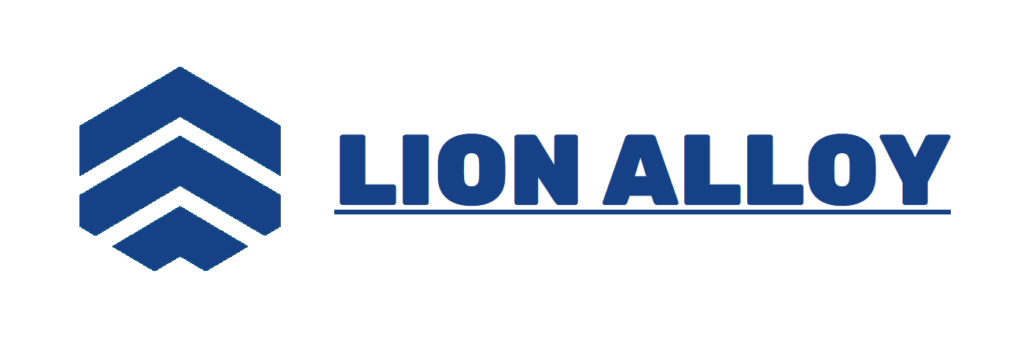Udimet® Alloy 720 Wprowadzenie produktu
Udimet® Alloy 720 to superalloy na bazie niklu o wysokiej wytrzymałości znany z doskonałych właściwości mechanicznych i odporności na środowiska o wysokiej temperaturze. Ten artykuł zawiera kompleksowe wprowadzenie do stopu Udimet®, obejmujące jego skład chemiczny, właściwości mechaniczne, wydajność w różnych temperaturach, zastosowaniach branżowych, kształtach i rozmiarach, standardach produkcyjnych, możliwościach spawania i przetwarzania, zaletach i wadach oraz porównanie z podobnymi stopami z podobnymi stopami .
Skład chemiczny
Udimet® stop 720 składa się przede wszystkim z niklu ze znacznymi dodatkami kobaltu, chromu, żelaza i innych elementów w celu zwiększenia jego właściwości mechanicznych i termicznych:
| Element | Skład (%) |
|---|---|
| Nikiel (Ni) | 59,0 - 63,0 |
| Cobalt (Co) | 17.0 - 21,0 |
| Chrom (Cr) | 15.0 - 17.0 |
| Żelazo (Fe) | 3.0 - 5.0 |
| Molibden (Mo) | 1,5 - 2,5 |
| Wolfram (W) | 0.5 - 1,5 |
| Aluminium (Al) | 0.5 - 1,5 |
| Tytan (Ti) | 0.5 - 1,5 |
| Bor (B) | 0.003 - 0,01 |
| Węgiel (C) | 0.08 Max |
Właściwości mechaniczne
Udimet® stop 720 wykazuje doskonałe właściwości mechaniczne odpowiednie do zastosowań w wysokiej temperaturze:
| Nieruchomość | Wartość |
|---|---|
| Wytrzymałość na rozciąganie, ksi (MPa) | 170 - 190 (1172–1310) |
| Granica plastyczności (przesunięcie 0,2%), ksi (MPa) | 120 - 140 (827 - 965) |
| Wydłużenie (% na 2 cale) | 15–20 |
| Twardość, Rockwell C (HRC) | 35–40 |
Charakterystyka wydajności
Udimet® Alloy 720 oferuje kilka zalet wydajności:
- Siła wysokiej temperatury: Zachowuje doskonałe właściwości mechaniczne w podwyższonych temperaturach do 1000 ° C (1832 ° F).
- Odporność na utlenianie: Zapewnia dobrą odporność na utlenianie i korozję o wysokiej temperaturze w różnych środowiskach.
- Odporność na pełzanie: Wykazuje wysoką odporność na pełzanie, dzięki czemu nadaje się do zastosowań pod stałym naprężeniem w wysokich temperaturach.
Zastosowania branżowe
Udimet® Alloy 720 jest stosowany w różnych branżach wymagających wysokiej wydajności w ekstremalnych warunkach:
| Sektor przemysłowy | Aplikacje |
|---|---|
| Lotnictwo | Składniki turbiny gazowej, takie jak łopatki turbiny, łopatki i dyski. |
| Wytwarzanie energii | Składniki turbiny gazowej i parowej, komory spalania i wymienniki ciepła. |
| Przetwarzanie chemiczne | Naczynia reaktora, wymienniki ciepła i rury obsługujące korozyjne chemikalia w wysokich temperaturach. |
Kształty i rozmiary
Udimet® Alloy 720 jest dostępny w różnych formularzach i rozmiarach, aby spełnić określone wymagania dotyczące aplikacji:
- Formularze: Blachy, płyty, pręty, odkuwki i drut.
- Rozmiary: Grubość od 0,5 mm do 100 mm dla blach i średnica od 1 mm do 300 mm dla prętów okrągłych.
Standardy produkcyjne
Udimet® Alloy 720 jest zgodny z międzynarodowymi standardami produkcyjnymi zapewniającymi jakość i niezawodność:
| Formularz produktu | Dostępne kształty | Dostępne rozmiary | Standardy produkcyjne |
|---|---|---|---|
| Talerze/Arkusze | Arkusze, Talerze | Grubość: 0,5 mm – 100 mm | ASTM B637, AMS 5764 |
| Pręty/pręty | Pręty okrągłe, Pręty kwadratowe | Średnica: 1 mm – 300 mm | ASTM B637, AMS 5764 |
| Odkuwki | Bloki, dyski, pierścienie | Rozmiar: dostosowany | ASTM B637, AMS 5764 |
Spawanie i obróbka
Udimet® Alloy 720 oferuje dobrą spawalność i charakterystykę przetwarzania:
- Spawalniczy: Można spawać metodami takimi jak TIG, MIG i zgrzewanie oporowe. Aby zachować właściwości, może być konieczne podgrzewanie wstępne i obróbka cieplna po spawaniu.
- Skrawalność: Zwykle obrabiane w stanie wyżarzonym przy użyciu narzędzi z węglików spiekanych i odpowiednich płynów obróbkowych.
Zalety i wady
| Aspekt | Detale |
|---|---|
| Zalety | Wysoka wytrzymałość i wytrzymałość w podwyższonych temperaturach, doskonała odporność na utlenianie, dobra odporność na pełzanie i dostępność w różnych formach i rozmiarach. |
| Niedogodności | Wyższy koszt w porównaniu ze standardowymi stopami niklu, wymaga specjalistycznego przetwarzania i obsługi ze względu na wysoką wytrzymałość i składniki stopowe. |
Porównanie z podobnymi stopami
UDIMET® Alloy 720 (UNS N07200) jest często porównywany z innymi superalloyami niklu o wysokiej wytrzymałości, takimi jak Udimet® Alloy 718 i Udimet® Alloy 625. Oto krótkie porównanie:
| Typ/właściwość stopu | Stop UDIMET® 720 | Udimet® stop 718 | Stop Udimet® 625 |
|---|---|---|---|
| Skład chemiczny | Wysoki nikiel, kobalt, chrom, z dodatkowymi elementami stopowymi dla siły wysokiej temperatury. | Wysoki nikiel, chrom i niobum z mniejszymi dodatkami glinu i tytanu. | Wysoki nikiel, chrom i molibden z niobium i tantalum dla wytrzymałości i odporności na korozję. |
| Właściwości mechaniczne | Wyższa granica rozciągania i plastyczności, doskonała odporność na pełzanie w wysokich temperaturach. | Niższa granica rozciągania i plastyczności w porównaniu do stopu 720 Udimet®, dobra wytrzymałość i odporność na zmęczenie. | Niższa granica rozciągania i plastyczności, doskonała odporność na zmęczenie i dobra odporność na korozję w różnych środowiskach. |
| Aplikacje | Turbiny gazowe, komponenty lotnicze wymagające wytrzymałości w wysokiej temperaturze i odporności na utlenianie. | Komponenty lotnicze, śruby o wysokiej temperaturze i elementy łączkowe. | Sprzęt do przetwarzania chemicznego, zastosowania morskie i komponenty lotnicze wymagające odporności na korozję. |
Ten szczegółowy artykuł wprowadza UDIMET® Alloy 720, podkreślając jego skład chemiczny, właściwości mechaniczne, charakterystykę wydajności, zastosowania branżowe, dostępne formy i rozmiary, standardy produkcyjne, możliwości spawania i przetwarzania, a także zalety, wady i porównanie z podobnymi stopami. Inżynierowie i profesjonaliści poszukujący solidnego, o wysokiej sile superalloyu do wymagających zastosowań w branży lotniczej, wytwarzania energii i chemicznej przetwarzania uznają, że Udimet® Alloy 720 jest odpowiedni do stosowania w ekstremalnych warunkach.


